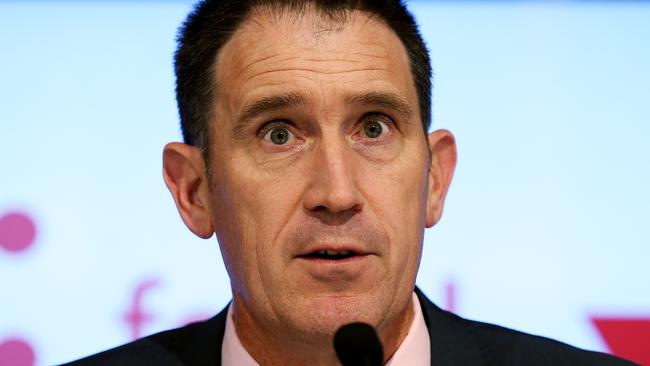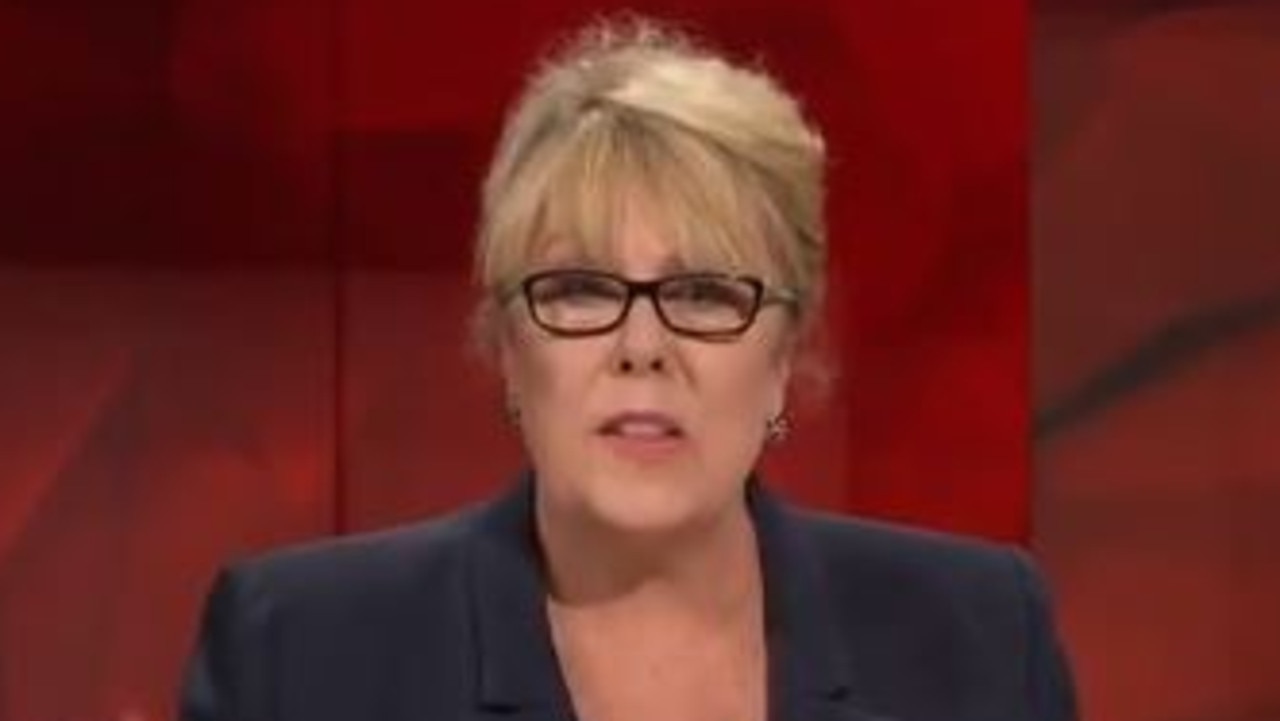How Cricket Australia laid the pitch for marathon media negotiations
Already overstretched from the ball-tampering scandal, James Sutherland was under huge pressure to clinch a deal.

It was a day of incredible pressure. A guessing game of bluff and counter-bluff involving the highest stakes for Cricket Australia chief executive James Sutherland. But this big match wasn’t being played at the sport’s venerable Sydney home, the SCG.
Four kilometres away, high above the CBD, on an unusually hot autumn evening, Cricket Australia was preparing to seal its $1.18 billion, six-year TV rights deal. It was inside the tower office of John Knox, managing director of investment bank Credit Suisse’s local arm, that cricket opened a new chapter in its history, 141 years after the first Test match was played.
As broadcasters, players and agents waited anxiously for news of the deal, negotiations went down to the wire on Thursday night, like the last over of a pulsating Big Bash match or an epic Test — but with more than one winner.
As a director on the Cricket NSW board and a cricket tragic, Knox was keen to help an overstretched Cricket Australia clinch a record deal, as Sutherland came under intensifying pressure to complete the rights process before the start of the new season in October.
The embattled governing body is also facing reviews on two fronts in the wake of the ball-tampering crisis.
Arriving in Sydney on Monday from Cricket Australia’s Melbourne headquarters to work out of Knox’s offices were Sutherland, executive general manager Ben Amarfio, general manager of media rights Stephanie Beltrame and senior legal counsel Nikki Linney. They were anxious. Three days earlier, talks between Cricket Australia and News Corp (publisher of The Weekend Australian) stalled after subscription-TV operator Foxtel took its offer off the table in protest at what it saw as double-dealing.
Foxtel, which is majority owned by News Corp, believed it was in exclusive negotiations but Fox Sports chief operating officer Peter Campbell found out that Cricket Australia was also talking to another would-be bidder, the Ten Network. Frustrated by the manner in which the talks were being conducted, Foxtel effectively walked away.
At the weekend, Sutherland engaged in back-channel diplomacy with News Corp executives in an attempt to bring the company back to the table. Without a pay-TV contribution to Cricket Australia’s coffers, the organisation faced a massive struggle to reach its ambitious $1bn target.
Most analysts agreed that unless one of the internet giants — Amazon, Facebook, or Google’s YouTube — entered the fray to challenge Foxtel, the Cricket Australia deal was unlikely to improve much. There were tentative signs of interest from YouTube in buying highlights packages but a looming inquiry into its business practices by the competition regulator spooked it.
By Monday, formal talks had resumed and continued for four nights. After making an unplanned trip to Sydney, Sutherland’s team could not secure a reservation at any hotel for the entire week. The Cricket Australia team moved from the InterContinental to the Four Seasons to the Marriot and back to the InterContinental, where the deal was announced on Friday, often working through the night.
Even before the pointy end of negotiations became gruelling, the two-month process had already been challenging.
The TV rights process officially got under way in March when Cricket Australia distributed detailed information packs to potential bidders. It later held a series of workshops with each of the parties. In that same month, officials flew to the US with the Ten team to meet the network’s new owner CBS.
Ten’s team included Big Bash League pundit and former international captain Adam Gilchrist as well as chief executive Paul Anderson and head of sport David Barham. Accompanied by the CA team, Ten met CBS international chief Armando Nunez and chairman Les Moonves at the media giant’s Los Angeles offices.
In the background, Ten was being advised by KordaMentha, one of Australia’s biggest insolvency outfits, which had put the company into administration last year. The Ten delegation made a good impression on Cricket Australia and Sutherland felt it was “theirs to lose” after Ten bought the Big Bash League in 2013 from Fox Sports.
A big hit with advertisers and young families alike, Sutherland felt Ten had polished the Big Bash League concept after former Fox Sports CEO Patrick Delany had taken the format to new heights with innovations and front-of-house razzmatazz.
Between Delany and Sutherland, the two of them hatched a strategy in 2011 that laid the foundations for Big Bash League’s current popularity.
Fast forward to Thursday night and Ten had dropped the ball. Relations were strained after Cricket Australia chairman David Peever lashed out at Ten in a scathing email that described the network as “bottom feeders” who used “appalling” tactics.
Peever sent the email to Nunez just days before the cheating crisis in South Africa. A week earlier Ten and CBS had submitted a $130 million-a-year joint bid with Nine. Cricket Australia believed the proposal was designed to drive the price down. Ten’s hopes had a further setback when the network was outplayed by its own teammate as crunch time for talks approached.
Nine chief executive Hugh Marks blindsided not only tennis rights holder Seven, but his joint venture cricket partner Ten with a $300m five-year commitment to buy Tennis Australia’s media rights deal. The deal left Nine with very little left in the tin to match improved bids from other broadcasters in the hunt for Cricket Australia’s coveted rights.
By Thursday, Foxtel’s team — comprised of Campbell, Delany, News Corp executive chairman Michael Miller and head of broadcast Siobhan McKenna — had agreed on terms in principle with Cricket Australia for the pay-TV component. Under the deal, Fox Sports will broadcast men’s home international one-day and Twenty20 matches, along with the remaining 16 games of the BBL as part of a dedicated cricket channel. The broadcaster will also simulcast Tests after stumping up an estimated $105m a season or $630m.
In the end, the absence of international players Steve Smith, David Warner and Cameron Bancroft while they serve bans because of the ball-tampering incident had no material impact on price.
At 9pm on Thursday, Cricket Australia opened an auction at Knox’s offices for the free-to-air networks to submit bids for that component. After making an initial bid, Seven upped its offer to estimated annual payments of about $75m ahead of the midnight deadline.
The Seven team — chief executive Tim Worner, commercial director Bruce McWilliam, Seven Group chief executive Ryan Stokes, and chief financial officer Warwick Lynch — had hit Ten for six.
CBS made an 11th-hour attempt to save the deal, but stepped up too late in the game, failing to meet the deadline with a much improved offer.
The deal with Foxtel and Seven breaks Nine’s stranglehold on the sport, 40 years after Kerry Packer took the game into the modern era. For Ten, the future is bleak.
Without any top-tier summer or winter sport, the network lacks the one key ingredient immune to audience fragmentation in the digital age: live sport.
After losing the Big Bash League to Foxtel and Seven, Ten now looks much like its reality ratings flop The Biggest Loser.





